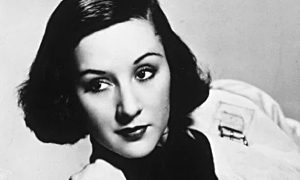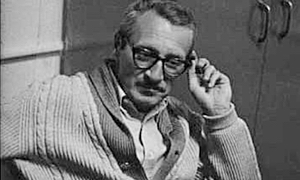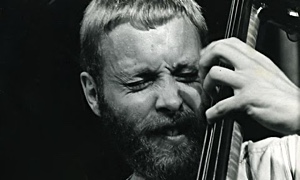Home » Jazz Articles » First Time I Saw » Cooking with Philly Joe
Cooking with Philly Joe
The other unique quality about Philly Joe was the way that he kept time. Once you really heard it, you could never mistake his time feeling for anyone else's.
Philly Joe was playing with his old buddy, Elmo Hope, on piano and young Larry Ridley on bass. Julian Priester was on trombone and a good alto player whose name I can't recall was also sitting in.
I'd heard that when Philly Joe played in a rhythm section, it really cooked; but I was still new enough to jazz not to know exactly what that word meant. "Cooking. I thought perhaps it meant playing with great intensity, great "heat. At one point I leaned over to one of my drummer friends and said naively, "It sounds like the pianist and Philly Joe are playing an arrangement underneath the horns. Is that all, like, written and then memorized? My friend looked back at me and shook his head. "No, man. That's cookin.'
A light went on inside my brain— an ah-ha, moment. "Cooking was another way of describing mental telepathy— that unique ability to be so relaxed and into the groove with your fellow musicians that everything you did came out like a beautifully prepared full-course meal. Cooking was that amazing capacity to react to things so instinctively that even you didn't realize you were doing it until after you'd played it.
The other unique quality about Philly Joe was the way that he kept time. Once you really heard it, you could never mistake his time feeling for anyone else's. The pattern he'd lay down on his ride cymbal went back and forth from simple to complex, but the tempo, his "time feeling was always precisely in the middle of the beat. Never forced or pushed—"just there." Even when he'd go away from the beat and play a riff that described the shape of the chord, the beat was still right where it had to be—in the middle of everything. It was completely free and yet completely anchored. Soloists could just float on it like a river, its current taking them where ever they wanted to go. It all felt effortless and relaxed, even when he played ridiculously fast tempos.
It was easy to see why Miles liked Philly Joe's playing so much and why he defended his drummer when people said he played too loud. Miles loved intensity, and intensity was just what Philly Joe gave him. Empathetic intensity.
Watching Philly Joe play made you understand what it means to swing. The way he slouched with a kind of languid grace behind his drums, relaxed but alert. The way his right eyelid would start to droop when he slid deeper into the groove. The light, relaxed grip he held his sticks with. And then the smooth, seamless patterns he created with his brushes—there were real melody ideas in those complex, lacy swishes.
Philly Joe's drum solos were always very original and just plain fun to hear. They were never just about technique. There were plenty of drummers who could do "technique. Philly Joe's sense of space and his phrasing reminded you of the way a great comedian paces and structures a joke so that the punch line lands exactly where it's supposed to for maximum effect.
But as dynamic and rich as his solos were, I think it was his creativity as an ensemble player that made Philly Joe the drummer everyone loved to play with. His slightest little suggestion with his left hand could turn a soloist in a whole different direction, opening up new possibilities. He did it to Miles all the time. Opening little doors. Making subtle hints—answering him back. Bantering —"How 'bout here, now, man... now quick... over here. Listen to them both on "Gone on the Porgy and Bess album. Or listen to the fun he and Dexter Gordon have on Dexter Calling. Or how he and Red Garland play musical tag on "Billy Boy.
That night at Birdland after the first set, Philly Joe wandered over to the bleacher section and we had a chance to talk with him a little. Somebody asked him who his favorite drummer was. He smiled and did that half-closed eye thing he'd do when he was playing deep in the groove. "I'm my favorite drummer, he said without a hint of irony. "What about Art Blakey or Max Roach? somebody said. "What about Buddy Rich? Nobody has faster hands than Buddy Rich. Philly Joe just shook his head: "Put me in a room with any drummer you want—all those cats—give them as many drums as they want, and just give me a snare, a hi-hat and some cymbals.... He left the statement unfinished, the way he'd do when he was playing with Miles sometimes, to let you fill in the last part.
Some people have described Philly Joe as a big band drummer who sounded great with small groups because he had such a highly developed sense of structure. There was always a full-fledged arrangement in his head just as if he were playing a big band chart but scaled down to fit a quintet or even a trio—and yet always completely spontaneous.
I had the good fortune to hear Philly Joe several times throughout his career— with Miles, and with his own groups, and it was always an incredibly energizing experience. I always came away smiling. Once, just before Philly Joe left for a brief self-imposed exile in Europe, I had the extraordinary opportunity of hearing him at Paul's Mall in Boston with Bill Evans and Eddie Gomez. The empathy and creativity that came out of those three men was miraculous. Whether it was a blistering up-tempo "Minority full of off-kilter, crazy-assed drum breaks that left you breathless, or a deep, beautiful and moving ballad like "My Foolish Heart, what these guys did was cook.
< Previous
Wonders Never Cease
Comments
Tags
For the Love of Jazz
 All About Jazz has been a pillar of jazz since 1995, championing it as an art form and, more importantly, supporting the musicians who create it. Our enduring commitment has made "AAJ" one of the most culturally important websites of its kind, read by hundreds of thousands of fans, musicians and industry figures every month.
All About Jazz has been a pillar of jazz since 1995, championing it as an art form and, more importantly, supporting the musicians who create it. Our enduring commitment has made "AAJ" one of the most culturally important websites of its kind, read by hundreds of thousands of fans, musicians and industry figures every month.























